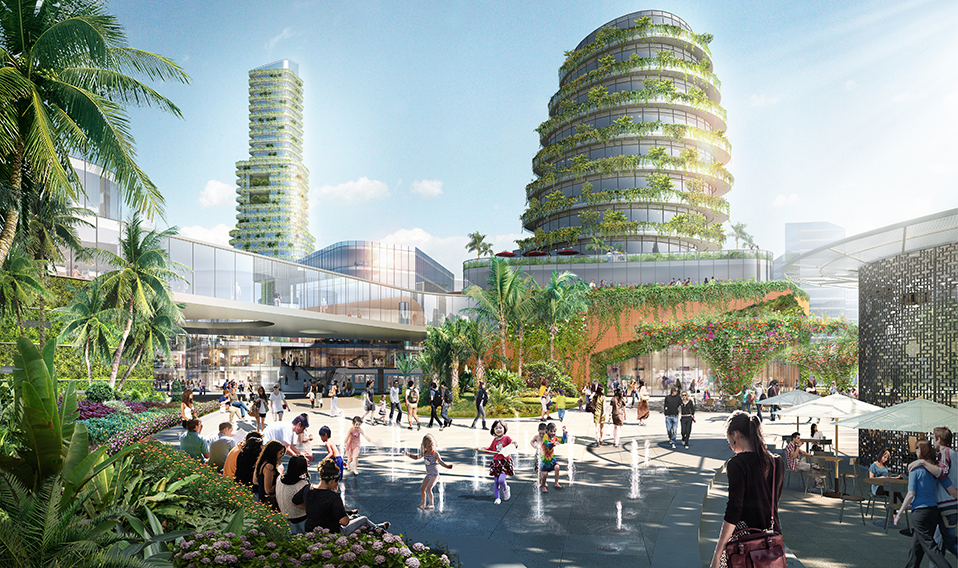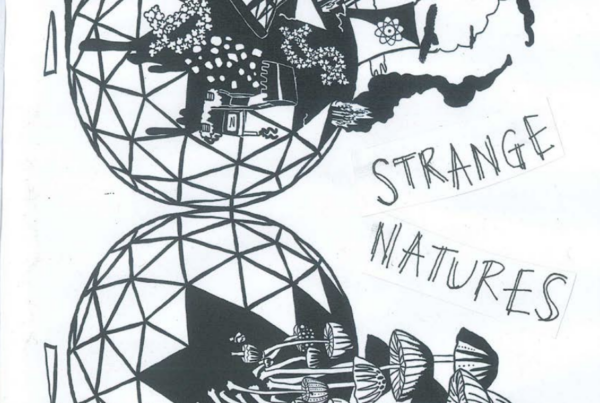By Panagiota Kotsila
Nature-based Solutions (NBS) are broadly perceived as positive ‘triple-win’ strategies, though they have so far shown contradictions and limited transformational potential for advancing environmental justice and sustainability in cities. We can, however, recover the underlying idea of respecting and protecting biodiversity as well as caring for and with nature to repair or transform some of our broken systems.
Editors’ note: This post forms part of the series “Green inequalities in the city”, developed in collaboration with the Green Inequalities blog. The series seeks to highlight new research and reflections on the linkages between the dominant forms of “green” redevelopments taking place in cities and questions of urban environmental justice, and the challenges and possibilities these imply for more just and ecological urban spaces.
—
Nature-based Solutions (NBS) may sound like an innocuous term. A lot of funding has been mobilised in the European Union and globally to research and promote them, as actions that are inspired by, supported by or copied from nature. In September 2019, the UN Climate Action Summit called for greater investment and financial tools for NBS in order to address the climate crisis. In Europe, specifically, NBS are seen not only as an alternative means to address social needs and to protect and restore natural environments, but also as a way of boosting green innovation and resilience in cities, supported by the likes of Greta Thunberg and George Monbiot. Yet, the relative novelty of the concept, and the way it is being redefined by the different actors that mobilize it, does not free it from contradictions. As we point out in a recently published article, the term carries three not-so-novel but particularly misleading assumptions.
First, NBS are expected to deliver triple-win benefits (environment, society, economy) through innovation and growth. This reproduces dogmatisms of trickle-down economics and decoupling (the idea that economic growth can be achieved while minimizing environmental impacts), ignoring the built-in injustices and dire ecological impacts of neoliberal capitalism. Applied in cities, this assumption further ignores the consumption of materials and energy that any urban infrastructure necessitates and the waste and pollution this process produces. These social metabolisms (of materials, energy, waste) connect scales and geographies globally, and involve ecological distribution conflicts and environmental injustices that might be evidenced within or beyond the urban setting where such infrastructure is being implemented.

A render of Forest City, a planned project off the shores of Singapore. NBS are often promoted as the accompanying element of modern, high-tech cities that provide services valued by city residents. However, these re-naturing visions often lack attention to accompanying exclusions and the wider socio-environmental impacts connected to constant urban expansion and development. Source: Cities Digest.
Second, ‘nature’ in NBS is often seen as a repository of processes that can be objectively measured, transformed and harnessed. The concept has, for example, been used in describing biomimicry design applications, even through NBS proponents like The International Union for Conservation of Nature (IUCN), which argues that ‘nature-inspired’ or ‘nature-derived’ applications are distinct from ‘nature-based’. Even so, NBS often builds on economistic readings of nature’s traits and services, brushing aside the value of non-replicable human–nature interactions. Often, for example, trees and greenery are treated solely as a transferable ‘physical’ element that offers advantages of CO2 capture, water retention/flood regulation or heat relief. In this way, the historical and cultural uniqueness of situated socio-natural systems—such as the irreplaceable memories and associations with a specific tree in a specific space—risk becoming erased or irrelevant. Moreover, when seen through a lens of ‘benefits’, the undesirable consequences of NBS easily escape the scope of conversations around urban nature, as in the case of marginalized residents who find refuge and creativity in abandoned grey spaces, or cases in which greening leads to undesired gentrification.
Third, NBS presented a priori as solutions are unproblematically prescriptive. In other words, they assume that conflicts, socio-ecological trade-offs, or other often-called disservices, have been negotiated and digested in their conceptualisation and/or implementation. Born in think-tank and expert-scientific circles, the definitions so far provided for NBS do little to systematically include the lived realities and tacit knowledges of people who experience the very problems they appear capable of solving. The application of NBS as solutions can thus falsely reproduce the “no alternative” logic of neoliberalism, no matter how problematic such promoted solutions might be.

Depiction of the components of Nature-based Solutions from the ThinkNature project, a communication platform for understanding and promoting NBS. This common description of NBS as triple-win solutions simultaneously benefiting the environment, society and economy, leaves out key social issues such as equity and democratic participation. Source: ThinkNature.
Nature-based Solutions, similar to concepts such as “sustainability” or “greening”, are broadly perceived as positive despite their often problematic assumptions and so-far limited transformatory potential. Nevertheless, the idea of renaturing as a way of respecting and protecting biodiversity as well as caring for and with nature to repair or transform some of our broken systems, is something that resonates with most of environmental science and activism. As we point out in our article, while NBS as a concept appears to be largely co-opted by green capitalism and green growth discourses, the challenge remains to (re)capture some of the ideas behind it and use them towards radical socio-ecological transformations that escape the ‘no alternative’ logic of neoliberalism and the imperative of continuous economic growth both in cities and beyond. Future visions of re-naturing and biodiversity should come with and from visions for emancipation, equity and justice.
If you want to know more about how we build on this argument through two examples of urban NBS in the city of Barcelona, listen to this podcast curated by anthropologist Ian Cook as part of the UrbanA project, and which aims to make research for just and sustainable cities more accessible.
Link to podcast: https://podcasts.ceu.edu/content/nature-based-solutions
—
Panagiota Kotsila is a Postdoctoral Research at the Barcelona Lab for Urban Environmental Justice and a member of the Undisciplined Environments editorial collective. Her work has focused on the politics of water and health in relation to urban/rural development and environmental change. Looking at the sociocultural determinants of health, her research speaks to the indispensability of interdisciplinary thinking in order to overcome the caveats of narrowly defined health indicators. As a political ecologist she is interested in how the notions of nature and risk are socially constructed, what meanings and values they carry, and what type of political processes are mobilized around them.
Top (feature) image: Esme Swimming, Parkroyal on Pickering, Singapore, a photograph by the artist Lucas Foglia. Source: Artforum.






This is written by those who do not know what the NbS is and the purpose behind it…! Equity and democracy are not the purpose of NbS…! My humble request is to study what NbS is and then criticise it…
The NbS is not a novel innovation as claimed by the article. NbS has been practiced earlier but abandoned in the past few decades…